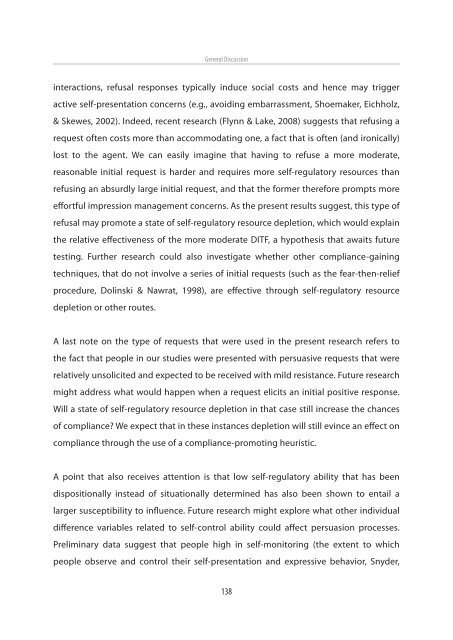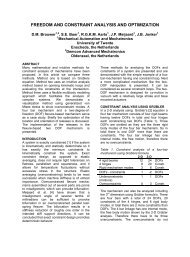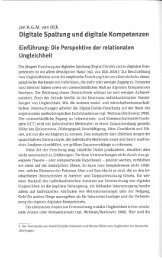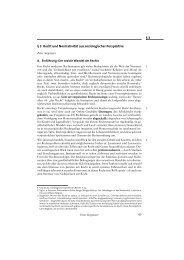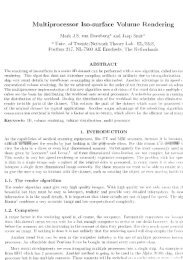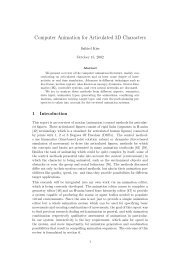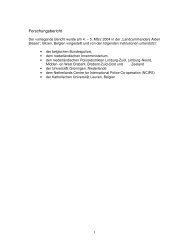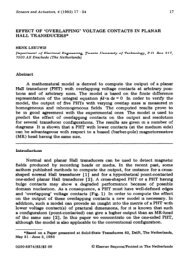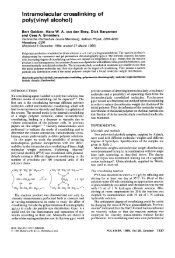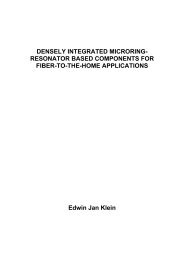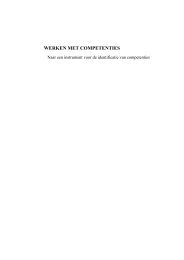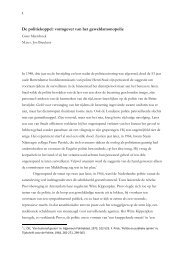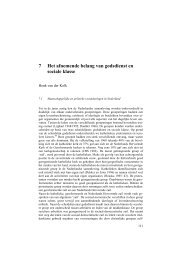Chapter 1 - Universiteit Twente
Chapter 1 - Universiteit Twente
Chapter 1 - Universiteit Twente
Create successful ePaper yourself
Turn your PDF publications into a flip-book with our unique Google optimized e-Paper software.
General Discussion<br />
interactions, refusal responses typically induce social costs and hence may trigger<br />
active self-presentation concerns (e.g., avoiding embarrassment, Shoemaker, Eichholz,<br />
& Skewes, 2002). Indeed, recent research (Flynn & Lake, 2008) suggests that refusing a<br />
request often costs more than accommodating one, a fact that is often (and ironically)<br />
lost to the agent. We can easily imagine that having to refuse a more moderate,<br />
reasonable initial request is harder and requires more self-regulatory resources than<br />
refusing an absurdly large initial request, and that the former therefore prompts more<br />
effortful impression management concerns. As the present results suggest, this type of<br />
refusal may promote a state of self-regulatory resource depletion, which would explain<br />
the relative effectiveness of the more moderate DITF, a hypothesis that awaits future<br />
testing. Further research could also investigate whether other compliance-gaining<br />
techniques, that do not involve a series of initial requests (such as the fear-then-relief<br />
procedure, Dolinski & Nawrat, 1998), are effective through self-regulatory resource<br />
depletion or other routes.<br />
A last note on the type of requests that were used in the present research refers to<br />
the fact that people in our studies were presented with persuasive requests that were<br />
relatively unsolicited and expected to be received with mild resistance. Future research<br />
might address what would happen when a request elicits an initial positive response.<br />
Will a state of self-regulatory resource depletion in that case still increase the chances<br />
of compliance? We expect that in these instances depletion will still evince an effect on<br />
compliance through the use of a compliance-promoting heuristic.<br />
A point that also receives attention is that low self-regulatory ability that has been<br />
dispositionally instead of situationally determined has also been shown to entail a<br />
larger susceptibility to influence. Future research might explore what other individual<br />
difference variables related to self-control ability could affect persuasion processes.<br />
Preliminary data suggest that people high in self-monitoring (the extent to which<br />
people observe and control their self-presentation and expressive behavior, Snyder,<br />
138


